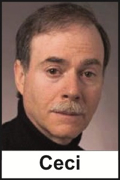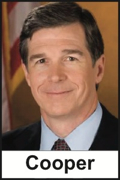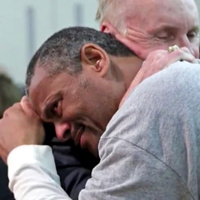Rascals case in brief
In the beginning, in 1989, more than 90 children at the Little Rascals Day Care Center in Edenton, North Carolina, accused a total of 20 adults with 429 instances of sexual abuse over a three-year period. It may have all begun with one parent’s complaint about punishment given her child.
Among the alleged perpetrators: the sheriff and mayor. But prosecutors would charge only Robin Byrum, Darlene Harris, Elizabeth “Betsy” Kelly, Robert “Bob” Kelly, Willard Scott Privott, Shelley Stone and Dawn Wilson – the Edenton 7.
Along with sodomy and beatings, allegations included a baby killed with a handgun, a child being hung upside down from a tree and being set on fire and countless other fantastic incidents involving spaceships, hot air balloons, pirate ships and trained sharks.
By the time prosecutors dropped the last charges in 1997, Little Rascals had become North Carolina’s longest and most costly criminal trial. Prosecutors kept defendants jailed in hopes at least one would turn against their supposed co-conspirators. Remarkably, none did. Another shameful record: Five defendants had to wait longer to face their accusers in court than anyone else in North Carolina history.
Between 1991 and 1997, Ofra Bikel produced three extraordinary episodes on the Little Rascals case for the PBS series “Frontline.” Although “Innocence Lost” did not deter prosecutors, it exposed their tactics and fostered nationwide skepticism and dismay.
With each passing year, the absurdity of the Little Rascals charges has become more obvious. But no admission of error has ever come from prosecutors, police, interviewers or parents. This site is devoted to the issues raised by this case.
On Facebook
Click for earlier Facebook posts archived on this site
Click to go to
Today’s random selection from the Little Rascals Day Care archives….
Click for earlier Facebook posts archived on this site
Click to go to
Today’s random selection from the Little Rascals Day Care archives….
‘Hunt for child abusers has become national pathology’
 Oct. 9, 2013
Oct. 9, 2013
“We are a society that, every 50 years or so, is afflicted by some paroxysm of virtue – an orgy of self-cleansing through which evil of one kind or another is cast out. From the witch-hunts of Salem to the communist hunts of the McCarthy era to the current shrill fixation on child abuse, there runs a common thread of moral hysteria.
“After the McCarthy era, people would ask: But how could it have happened? How could the presumption of innocence have been abandoned wholesale? How did large and powerful institutions acquiesce as congressional investigators ran roughshod over civil liberties – all in the name of a war on communists? How was it possible to believe that subversives lurked behind every library door, in every radio station, that every two-bit actor who had belonged to the wrong political organization posed a threat to the nation’s security?
“Years from now people doubtless will ask the same questions about our present era – a time when the most improbable charges of abuse find believers; when it is enough only to be accused by anonymous sources to be hauled off by investigators; a time when the hunt for child abusers has become a national pathology.”
– From “From the Mouths of Babes to a Jail Cell” by Dorothy Rabinowitz (Harper’s Magazine, May 1990)
Prosecution kept its eye on the (wrong) target
Dec. 28, 2011
“Throughout the trial, prosecuting attorneys (in the Little Rascals case) repeatedly pursued their hunches without an apparent desire to test an alternate theory. This resulted in a rather spectacular false admission by 6-year-old Andy, who had been a 3-year-old at the time of the alleged sexual abuse by Bob Kelly.
 “ ‘Prosecutor: Do you remember a time where you ever had to do anything to Mr. Bob’s hiney with your mouth?
“ ‘Prosecutor: Do you remember a time where you ever had to do anything to Mr. Bob’s hiney with your mouth?
“ ‘Andy: No, ma’am.
“ ‘Prosecutor: Do you remember telling Dr. Betty that one time you had to lick Mr. Bob’s hiney? Did that happen? Did you ever have to do that, that you didn’t want to do it?
“ ‘Andy: Yes, ma’am.’
“In reality, the prosecutor had made a mistake, thinking that the charge was that Andy had sodomized Bob Kelly, rather than the other way around. The state dropped this charge after it realized Andy had admitted to the wrong charge.
“This ought to have sensitized the prosecution to the very real dangers of pursuing a single hypothesis in the relentless manner we have described, but unfortunately it did not appear to have done so.”
– From “Jeopardy in the Courtroom: A Scientific Analysis of Children’s Testimony”
by Stephen J. Ceci and Maggie Bruck (1995)
‘A state lost the ability to see clearly’ – again
 Dec. 31, 2012
Dec. 31, 2012
Anticipating Attorney General Roy Cooper’s 2007 statement dismissing charges against the lacrosse defendants, Duke law professor Paul Haagen said,
“The critical thing could be the wording. It could simply say the state can no longer prove its case, which would be a very harmful outcome for the community, (or it) could provide a full accounting of why the case should never have been brought.”
As it turned out, Cooper – elbowed along by the Duke students’ phalanx of top-shelf lawyers – chose the road less traveled by prosecutorial bitter-enders such as H. P. Williams, Nancy Lamb and Bill Hart:
“In the rush to condemn, a community and a state lost the ability to see clearly…. I think a lot of people owe a lot of apologies to a lot of people.”
Cooper’s words were appropriate to end the case of the lacrosse defendants – and they would be just as appropriate to end the case of the Edenton Seven.
Prosecutors still digging in their heels?

newsobserver.com
Howard Dudley, left
March 7, 2016
“Have any public officials apologized to Dudley?
“No.”
– From “Howard Dudley’s new life: restaurants, cellphones and a cemetery visit” (cached) by Joseph Neff in the News & Observer (March 5)
Aw, what’s to apologize for – it was only 23 years of wrongful imprisonment (cached)….
![]()











0 CommentsComment on Facebook